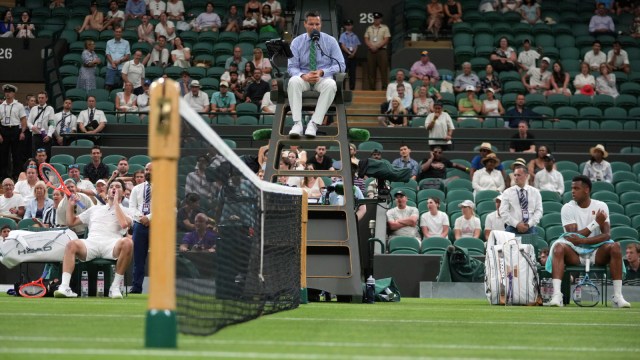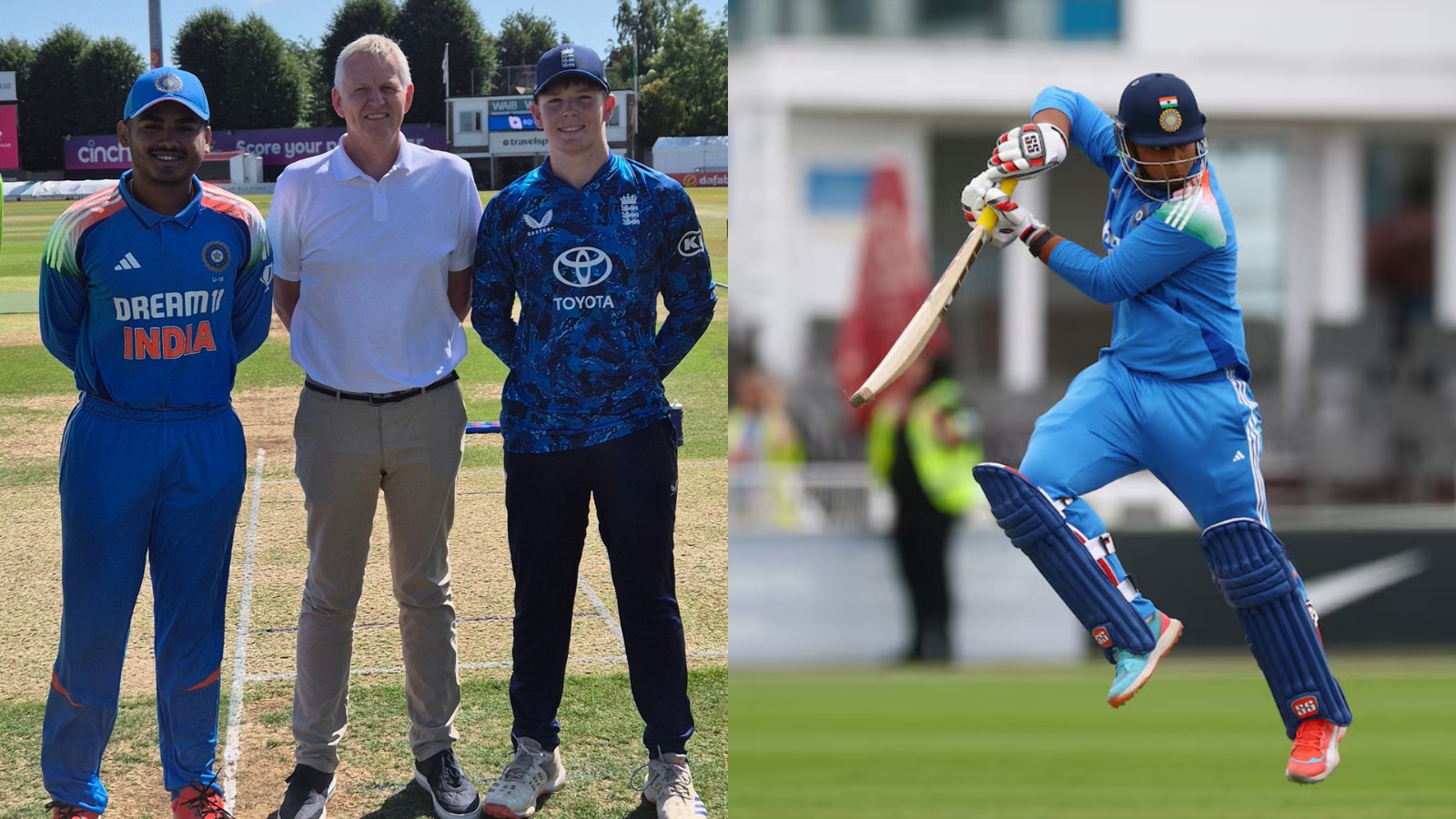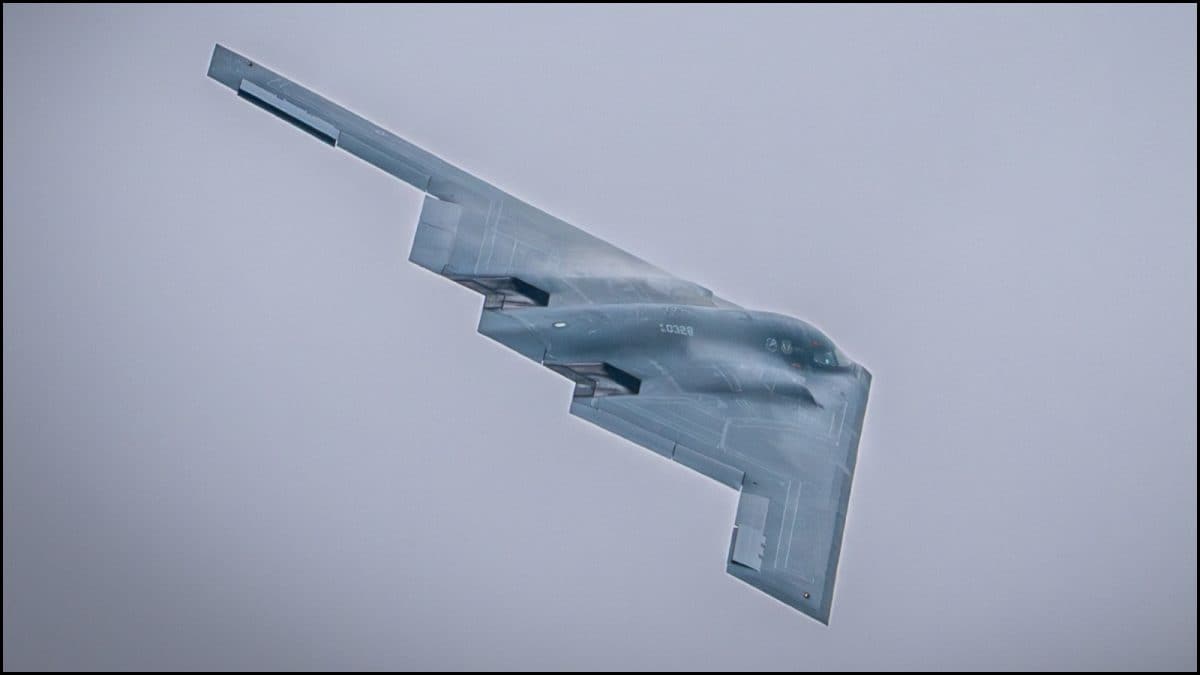ARTICLE AD BOX
 The electronic line-call system was developed by Hawk-Eye and uses AI to analyse footage from up to 18 cameras tracking the progress of the ball across the court. (AP)
The electronic line-call system was developed by Hawk-Eye and uses AI to analyse footage from up to 18 cameras tracking the progress of the ball across the court. (AP)
How did the first day of the electronic calls that ended 147-year tradition of lines-judges at Wimbledon go? It turns out the players have small issues about the volume of the calls. And they are getting used to human vocalisation of those calls. Outside the grounds, some fans held up signs to protest their grievances that the technology is taking jobs away from people.
The electronic line-call system was developed by Hawk-Eye and uses AI to analyse footage from up to 18 cameras tracking the progress of the ball across the court. If the ball falls wide during a rally or serve, manufacturers say the software will issue a notification within a tenth of a second. In a unique Wimbledon twist, those calls are then vocalised using recordings of the voices of staff from the All England Club.
On court 18 during Cameron Norrie’s first-round match against Roberto Bautista Agut, the announcement of “fault” calls used the voice of a ballboy, while the “out” calls were said out in the voices of adults – male and female.
“The voice, I cannot really hear it, it is a bit too low,” said China’s Yuan Yue, who played her first-round match against Germany’s Eva Lys on court eight, an outside court with fans moving around. “I asked the referee can you [turn] it up a little bit. He said he cannot. He said he will try to let us know [the call] because he has a machine that can look it up. I don’t really mind, I just want to hear it clearly. [The umpire’s] voice is a lot more loud than the automatic one so we can hear that clearly.”
Another player Jelena Ostapenko, however, said she was “perfectly fine” with the nature of the calls, though she echoed Yuan’s issues with the volume.
“I hit a few shots that were at a pretty big moment and the crowd kind of went nuts, so maybe I lost it a bit in that,” she said.
UK’s Cameron Norrie sympathised with the loss of jobs, but said now the calls can’t be argued against.
Story continues below this ad
“As a player it’s pretty black or white with the calls. In, out… there’s no mistake, nothing happening. Definitely you’ve got to feel for those linesmen and those people. That’s a bit tough for them, but it’s pretty black or white with the calling.”
Sally Bolton, the chief executive of the All England Club, said the new system tries to strike a balance between modernity and tradition. “For us, it was time to make that change,” she said. “It’s not a money‑saving exercise, the technology investment we’ve had to make to deliver electronic line calling is not insignificant. It’s about evolving the tournament and making sure that we’re providing the most effective possible line calling.
“The line judges have been such an important part of the championships for so many years, and we obviously hugely appreciate the service that they’ve provided. Quite a few of them, around 80, are still with us as match assistants in a new role, supporting the chair umpire.”



.png)
.png)
.png)

























 English (US) ·
English (US) ·